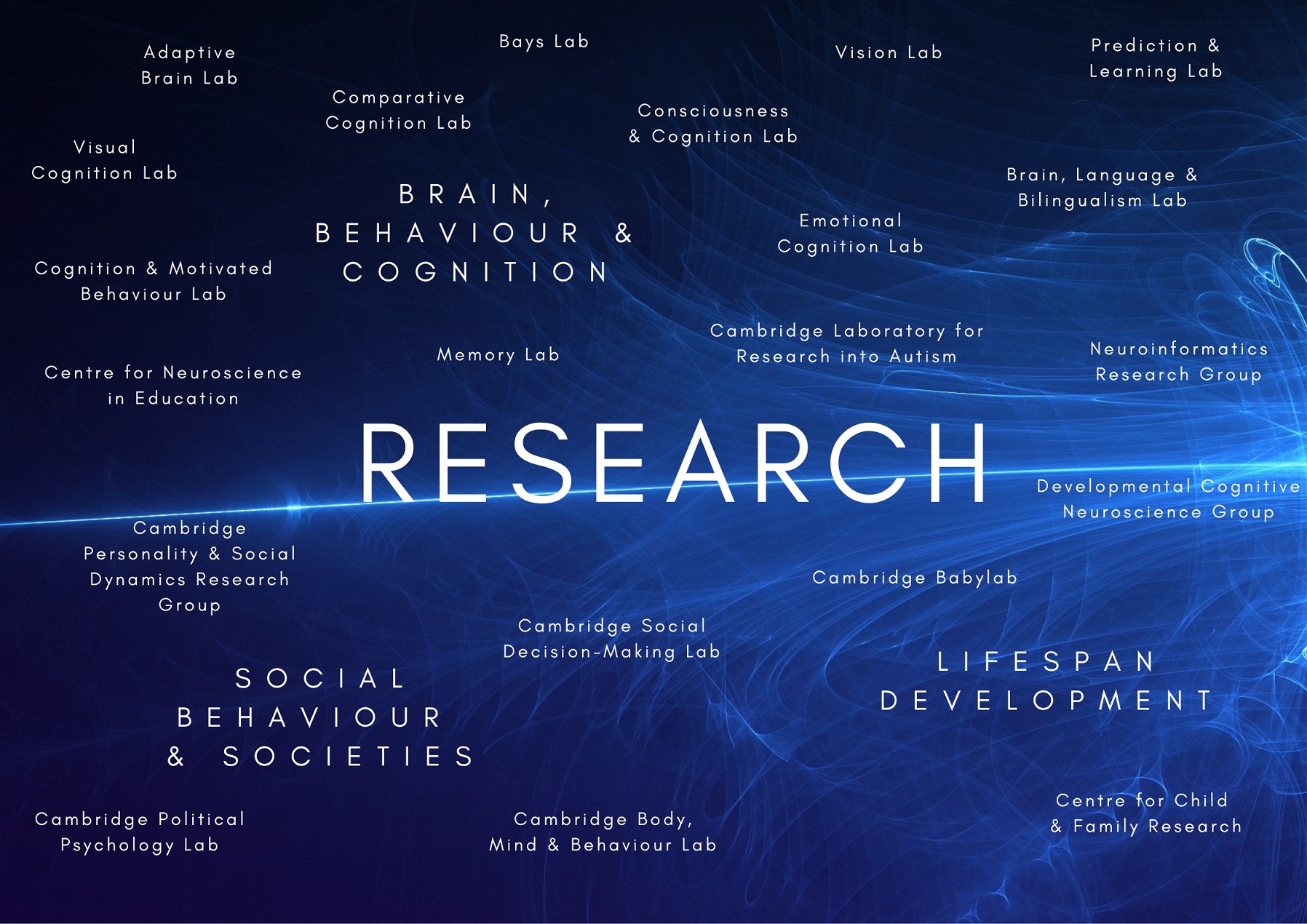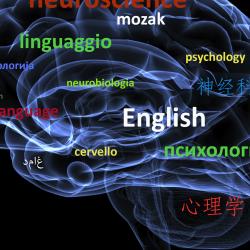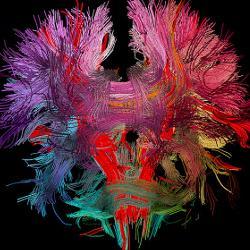➤ Research Centres, Groups and Labs |
➤ Volunteers for Research Study Participation |
School of Biological Sciences research themes
The School of Biological Sciences has six cross-cutting Research Themes, designed to provide research integration across departments, encourage new conversations and enhance interdisciplinary networking critical for major innovation. A comprehensive update and progress on Research Theme activities over the course of their first year can be found in the report 'Research Themes - Year in Review'.
Psychology research strategy and themes
The Department of Psychology Research Strategy involves three research themes to foster integration, strengthen collaborations and increase the impact of our research projects.
Our Research Strategy aims to:
• Enhance interactions and develop new links among researchers across levels within the Department
• Enhance links to other Departments across Schools and involvement in large-scale funding initiatives.
• Develop an outward-looking research profile for the Department
Lead:
Research areas: Behavioural Neuroscience, Cognitive Neuroscience, Perceptual and Cognitive Systems, Brain Computations, Neuropsychiatry and disease models
Research in this group focuses on understanding the mechanisms that underlie behaviour, perception and cognition in human and animal models. We bring together interdisciplinary methodologies that range from behavioural testing, state-of-the-art imaging, genomic and neurobiological measures to computational approaches.
Research groups and labs associated with this theme
Blakemore Lab: Developmental Cognitive Neuroscience Group
Brain, Language and Bilingualism lab
Cambridge Centre for Ageing and Neuroscience (Cam-CAN)
Cambridge Laboratory for Research into Autism
Centre for Neuroscience in Education (CNE)
Centre for Speech, Language and Brain (CSLB)
Cognition and Motivated Behaviour Lab
Consciousness and Cognition Lab
Davis Lab (Visual Cognition Lab)
NeuroInformatics Research Group
Core members
- Dr Stephanie Archer
- Dr Paul Bays
- Dr David Belin
- Dr Richard Bethlehem
- Professor Sarah-Jayne Blakemore
- Dr Mirjana Bozic
- Dr Tristan A. Bekinschtein
- Dr Lucy Cheke
- Professor Nicola S. Clayton
- Professor Jeff Dalley
- Dr Greg Davis
- Professor Pasco Fearon
- Professor Usha Goswami
- Professor Zoe Kourtzi
- Dr Rebecca Lawson
- Dr Amy Milton
- Dr Kate Plaisted-Grant
- Professor Jon Simons
- Dr Dénes Szücs
- Dr Deborah Talmi
- Dr Varun Warrier
Affiliated members
Lead:
Research areas: Genes and Environment, Foundational Development, Children and Families, Adolescence, Ageing
Research in this group asks how the brain and behaviour develop over time. We focus on critical developmental periods, including early life and adolescence, ageing, and developmental disorders. We also investigate interactive effects, e.g., between genes and the environment and between families and children.
Research groups and labs associated with this theme
Applied Developmental Psychology Research Group
Blakemore Lab: Developmental Cognitive Neuroscience Group
Cambridge Centre for Ageing and Neuroscience (Cam-CAN)
Cambridge Laboratory for Research into Autism
Gender Development Research Centre
NeuroInformatics Research Group
Core members
- Dr Stephanie Archer
- Dr Richard Bethlehem
- Professor Sarah-Jayne Blakemore
- Professor Pasco Fearon
- Professor Mark Johnson
- Professor Melissa Hines
- Dr Kate Plaisted-Grant
- Dr Dénes Szücs
- Dr Varun Warrier
Affiliated members
Lead:
Research areas: Social cognition, Emotion, Personality and individual differences, Judgement and decision-making, Communication, Big-data analytics.
Research in this group focuses on interactions between psychological and social processes and their impact on judgements, decisions, and behaviour. We use experimental, observational, and computational methods to examine psychological processes and outcomes at multiple levels of analysis, including physiological, experiential, and behavioural.
Research groups and labs associated with this theme
Blakemore Lab: Developmental Cognitive Neuroscience Group
Cambridge Body, Mind and Behaviour Lab
Cambridge Political Psychology Lab
Cambridge Social Decision-Making Lab
The Communication Research Group
The Cambridge Personality and Social Dynamics Research Group
Core members
Affiliated members




